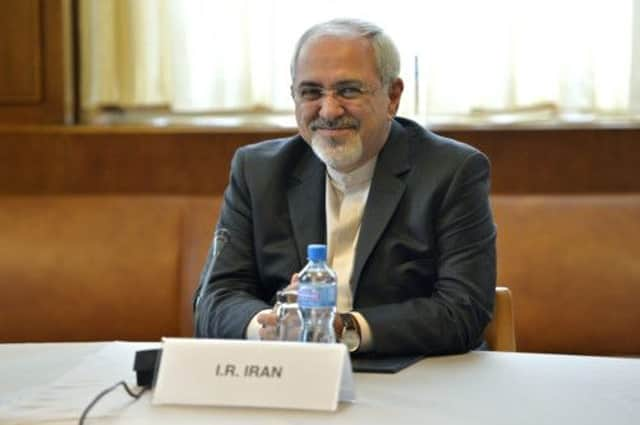Kerry says ‘gaps need bridged’ on road to Iran deal


“I want to emphasise there is not an agreement at this point,” Mr Kerry said shortly after arriving in Geneva, tempering rising anticipation of a breakthrough that would reduce the risk of a Middle East war over Iran’s nuclear aspirations.
“We hope to try to narrow these differences but I don’t think anybody should mistake there are some important gaps that have to be closed,” he told reporters.
Advertisement
Hide AdAdvertisement
Hide AdIran spelled out a major difference soon afterwards, with a member of its negotiating team, Majid Takt-Ravanchi, telling Mehr news agency that oil and banking sanctions imposed on Tehran should be eased during the first phase of any deal.
The six world powers have offered Iran access to up to $50 billion in Iranian funds frozen abroad for many years but ruled out any broad dilution of sanctions in the early going of a deal.
Midway through the second round of negotiations since Iran elected a moderate president who opened doors to a peaceful solution to the nuclear dispute, Mr Kerry joined fellow foreign ministers in Geneva to help cement a preliminary accord, with Israel warning they were making an epic mistake.
Diplomats said a breakthrough remained uncertain and would in any case mark only the first step in a long, complex process towards a permanent resolution of international concerns that Iran may be seeking the means to build nuclear bombs.
However, they said the arrival of Mr Kerry, Foreign Secretary William Hague and French and German foreign ministers Laurent Fabius and Guido Westerwelle signalled that the five permanent UN Security Council members and Germany may be closer to a pact with Iran than ever before.
Mr Kerry was expected to hold a trilateral meeting with European Union foreign policy chief Catherine Ashton and Iranian foreign minister Mohammad Javad Zarif.
Israeli prime minister Benjamin Netanyahu, who regards Iran’s atomic aspirations as a menace to the Jewish state, warned Mr Kerry and his European counterparts that Iran would be getting “the deal of the century” if they carried out proposals to grant Tehran limited, temporary relief from sanctions in exchange for a partial suspension of, and pledge not to expand, its enrichment of uranium for nuclear fuel.
Saudi Arabia, Iran’s chief rival for regional influence, has also made clear to Washington that it does not like the signs of a possible US-Iran rapprochement.
Advertisement
Hide AdAdvertisement
Hide AdIran says its nuclear activities are geared only to civilian needs and has refused to suspend them.
The fact that a deal may finally be feasible after a decade of rhetorical feuding rather than genuine negotiations between Iran and the West highlighted a striking shift in the tone of Tehran’s foreign policy since the election in June of Hassan Rouhani, a pragmatic former nuclear negotiator, as president.
In Iran, clerics voiced important support for the Iranian negotiating team.
The Friday prayer leader in the town of Meshgin, Gholamreza Baveqar, was quoted by Fars news agency as saying that “the nuclear negotiators are sons of this nation and the supreme leader (Ali Khamenei) supports them.”